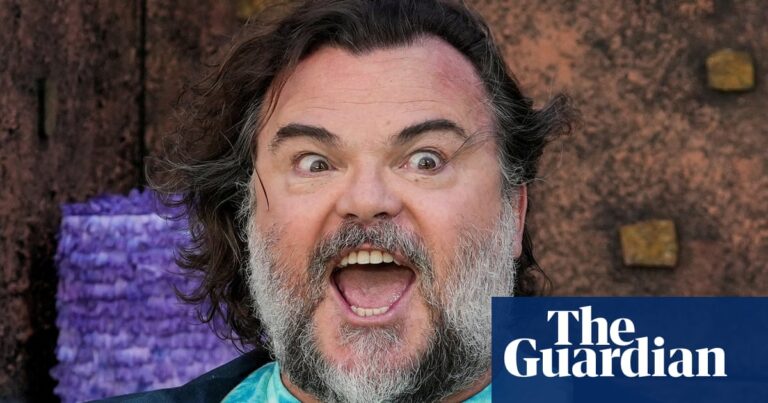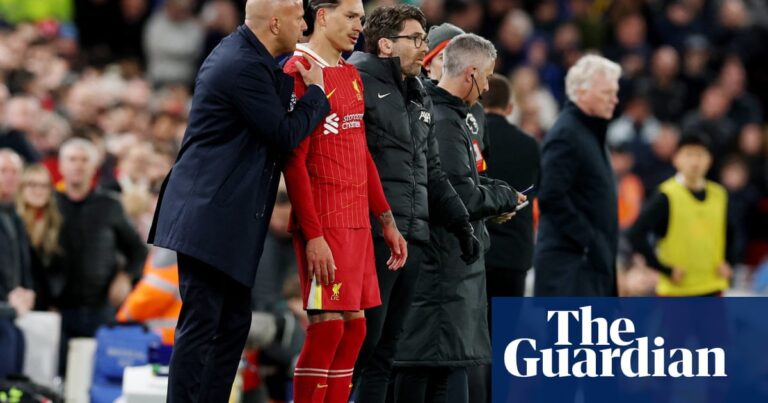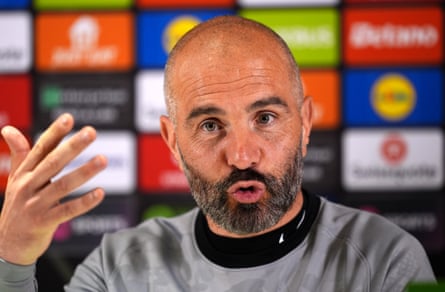The first time I fell in love, I was 13. Butterflies fluttered in my stomach constantly. I took any opportunity to mention my love, no matter how tangential to the conversation. If the subject came up organically, I felt as if I could burst with joy. I never met them, but that didn’t make the feelings any less real. That I was in love with Take That was irrelevant: it was love all the same.
When the British boyband split up in 1996, the press conference was broadcast live. During the Q&A, a journalist from BBC Manchester told the sombre group: “We’ve just had a 14-year-old fan phone in tears. What’s your message to her?” Looking a little befuddled, Mark Owen replied: “Erm … we’re sorry, I suppose.”
Tears were the least of it. I vividly remember being in my classroom, nearly as shellshocked as Owen was, as my classmates held an impromptu vigil before registration. A shrine developed outside HMV on Oxford Street, complete with candles. The Samaritans set up a hotline to counsel distraught fans. Schools held special assemblies for pastoral care. “Tears aren’t worth shedding for us four,” Owen added. “It isn’t the end for us, d’you know what I mean?”
Perhaps partly because of this outsized reaction, when One Direction split up in 2016 it was couched as an “indefinite hiatus”. In online communities, “you weren’t allowed to call it a breakup,” one fan recalled on Reddit. “It was strictly a hiatus and it was strictly so they could travel and chill on a beach, not because they wanted to pursue solo projects.” In retrospect, the intensity of this denial is understandable: these breakup moments were, for different generations, the first time many girls had dealt with the loss of something they loved.
Boybands have a surreal and fascinating position in many young girls’ lives. Softly, handsomely, they guide us through our first experience of romantic love. Big eyes looking up from under perfect hair, humbly asking you to be their girl – at a time when no one is actually asking us that, because we are awkward teenagers whose hair refuses to behave and we have just got our first periods. They wink and grin at us in music videos, assuring us they are sharing all of this with them.

Much dismissed by Serious Music Fans, the songs are often incredible – precision engineered by top songwriters to romance swathes of people while sounding as if they are aimed just at you. They gently promise us that we are beautiful even if we don’t know it, that everything else will be OK as long as we love them, that one day someone will obsess sorrowfully over the lipstick mark we left on a coffee cup. Who doesn’t want that? And between the romance, there is dancing, there are in-jokes, there are killer hooks.
We live in a patriarchal society and even if you don’t have the language to describe it as that, you feel the effects. When grown men leer at adolescent girls and misogyny is a fact of life, boybands offer a different option, even if it isn’t real. They are clean, sweet, palatable. When the men around you are being gross or condescending, five pleasant lads larking about on stage and singing about their feelings is a potent alternative – even a hoped-for ideal.
Liam Payne’s death, so stark and horribly real, induces a much more traditional feeling of grief than the one experienced in the wake of a boyband breakup. This is the loss of someone many women once loved – as with my Take That experience, that love was not synthetic or simulated, but embodied and real. For former One Direction fans there are other, parallel strands of grief: for the irreversible loss of the original much-loved quintet, and perhaps for the absurdly passionate girl they used to be. When you love a boyband in adolescence, you love them with your whole heart. People are often quick to sneer at “hysterical” screaming female fans, but these girls are in the throes of natural feelings that adulthood often teaches us to muffle. And when boybands break up, and break our hearts, we learn something for when stronger grief visits us.
Source: theguardian.com





















